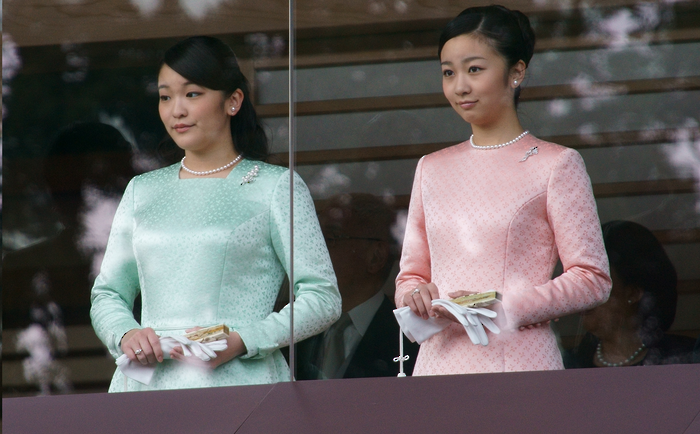Cultural appropriation and appreciation: a thin line to tread
We should welcome attempts to engage with non-Western culture, even if we must acknowledge their flaws

While mere decades ago, the term “cultural appropriation” would likely not have been a prominent part of many people’s vocabulary, as we have become increasingly aware of the debates that surround our multicultural society, and are introduced increasingly to global culture, it has firmly established itself as part of the modern individual’s lexicon.
As someone who has chosen to study a foreign language and culture in Japanese, I am acutely aware of the benefits of exposing oneself to another culture, but equally the perils of misrepresenting or misusing it. Suggestions of the appropriation of Japanese culture have seen a meteoric rise recently. Within Cambridge, it was the controversial theme of the 2016 Trinity Hall June Event, initially titled “Tokyo to Kyoto” that drew attention, eventually rebranding itself “Metropolis”. In the wider community, the live-action of the animated classic Ghost in the Shell, as well as the soon to release film remake of the anime-series and live action film Death Note have drawn considerable criticism for whitewashing the casts.
Indeed, this treatment of Asian cinema, as well as Asian roles in Western cinema is hardly new. Popular Japanese horror films, such as The Ring and The Grudge alongside Korean films such as Oldboy have been remade with Western actors. As for Western actors portraying Asian roles, this was most recently highlighted by Tilda Swinton’s casting as a Tibetan man in Doctor Strange, but it has a history, with celebrated actors such as Mickey Rooney having played Asian roles in the past, a caricatured Japanese photographer in Breakfast at Tiffany’s. Unquestionably, there are times when the West has got it wrong, and produced portrayals of Asian culture and society that are unequivocally offensive and demeaning, particularly with performances such as Mickey Rooney’s.
“...the lamentable truth is that this is the largest amount of mainstream attention that Japanese culture has attracted within recent memory”
However, I would argue that the distinction between cultural appropriation and appreciation is paper thin, and often, the two can be inextricably tied together. While reaction towards the release of Ghost in the Shell came with a fair share of backlash, and the anticipated release of the remake of Death Note has also attracted its share of criticism, the lamentable truth is that this is the largest amount of mainstream attention that Japanese culture has attracted within recent memory, and it is only through this attention that Japanese culture could come to be appreciated to a wider degree in this country.
While it’s easy to label these works as offensive and demeaning, it’s less easy to then suggest where else Japanese culture is gathering a presence in Western media. Of course, there are exceptions: the success of the films of Studio Ghibli, the popularity of works by Murakami Haruki and even the worldwide phenomenon of Pokémon are testament to the power of Japanese culture. Yet these represent a mere fraction of the cultural treasures of Japan. The literary works of authors such as Natsume Sōseki and Yasunari Kawabata, the films of directors of the like of Akira Kurosawa and Hirokazu Koreeda, the theatrical forms of rakugo and bunraku- Japanese culture remains, for the most part, unexplored in the West.
And herein lies my quandary with the reaction to adaptations of Japanese films, and the use of Japanese culture as a theme in events such as Trinity Hall’s June Event. While they are by no means an ideal representation of Japanese culture, and can indeed stray into the offensive, I am glad that they are opening a dialogue. If people are inspired to watch or read the original material for either Ghost in the Shell, or Death Note, then I believe that they have served an excellent purpose: opening people up to the authentic culture of another country.
While asserting to people that an event or adaptation is cultural appropriation often prevents the projects from being realised, it might be far more effective and worthwhile to introduce people to a foreign culture, and enable them to gain an appreciation for the culture – then pass a judgement themselves. A kind of cultural appropriation “if you give a man a fish…” proverb.
Especially with an occasion such as the Trinity Hall June Event, to cancel it before it has even been given a chance to portray Japanese culture I believe simply stifles a debate, and blocks opportunities to introduce people to a new culture. The Trinity Hall June Event, despite the name change, maintained some fantastic elements of Japanese culture, the contemporary musical act Anchorsong and traditional Taiko drummers, that displayed a new, refreshing aspect of Japanese culture.
With an occasion such as this, it should be a case of “innocent until proven guilty” – we should not judge these things on past transgressions, else we simply prevent progress. While we are right to condemn offensive and demeaning portrayals, we should not let these poison our attempts at a greater understanding of other cultures. I, for one, am grateful that a dialogue on Japanese culture is being introduced, even if it is through the means of the debate surrounding cultural appropriation
 News / Eight Cambridge researchers awarded €17m in ERC research grants27 December 2025
News / Eight Cambridge researchers awarded €17m in ERC research grants27 December 2025 News / Downing investigates ‘mysterious’ underground burial vault 29 December 2025
News / Downing investigates ‘mysterious’ underground burial vault 29 December 2025 Lifestyle / Ask Auntie Alice29 December 2025
Lifestyle / Ask Auntie Alice29 December 2025 Sport / Hard work, heartbreak and hope: international gymnast Maddie Marshall’s journey 29 December 2025
Sport / Hard work, heartbreak and hope: international gymnast Maddie Marshall’s journey 29 December 2025 Interviews / Meet Juan Michel, Cambridge’s multilingual musician29 December 2025
Interviews / Meet Juan Michel, Cambridge’s multilingual musician29 December 2025










